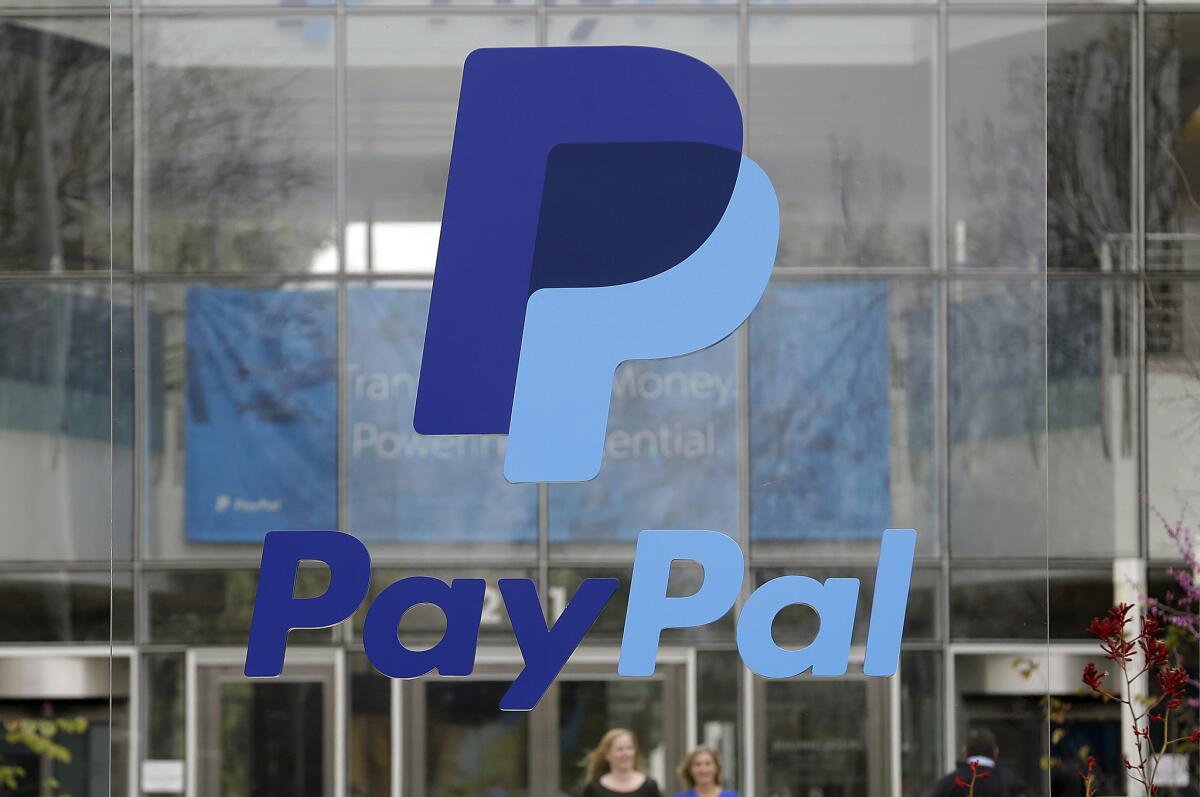Feds investigating payment service Venmo for possible deceptive practices

A sign outside the headquarters of PayPal, parent of Venmo, in San Jose on March 10, 2015.
Popular peer-to-peer payment service Venmo is under investigation by the Federal Trade Commission in connection with possible unfair and deceptive practices.
It’s the latest sign of increased regulatory scrutiny of emerging financial technology firms, and at least the second time Venmo may have run afoul of regulators.
Venmo’s parent, San Jose payments giant PayPal Holdings Inc., disclosed the investigation Thursday in a filing with the Securities and Exchange Commission.
The FTC, which enforces consumer protection and antitrust laws, in March demanded documents and other information from PayPal “to determine whether we, through our Venmo service, have been or are engaged in deceptive or unfair practices in violation of the Federal Trade Commission Act,” the company reported.
FTC spokesman Jay Mayfield confirmed the company is under investigation but declined to provide additional details.
PayPal spokeswoman Amanda Miller said the company is cooperating with the commission.
“We are completely aligned with regulators in their efforts to ensure that consumers have positive experiences when using our services,” Miller said in an emailed statement. “We consult and collaborate with regulators and work hard to comply with laws and regulations in the markets where we do business, around the world.”
The Federal Trade Commission Act generally prohibits unfair and deceptive practices across a wide range of industries. Often, violations of the act amount to a lack of disclosure about fees or other practices.
See more of our top stories on Facebook >>
In the case of Venmo, there’s little indication of what the commission could be looking for.
The service, which allows users to send money to each other using a smartphone app, is free for users who link their Venmo accounts to bank accounts or most debit cards. Venmo charges a 3% fee to transfer money from credit cards and some debit cards.
The investigation comes as California and federal regulators, including the Consumer Financial Protection Bureau and the Office of the Comptroller of the Currency, which oversees banks, have taken a more active interest in financial technology firms.
Though much of regulators’ focus so far has been on online lenders, Venmo has attracted regulatory scrutiny before. In 2014, the company was reprimanded by the California Department of Business Oversight in connection with consumer privacy issues and fraud-prevention practices.
SIGN UP for the free California Inc. business newsletter >>
Venmo is one of PayPal’s fastest-growing business lines, with the volume of money transferred through the service hitting $3.2 billion in the first three months of this year -- up more than 150% from the same period in 2015.
But PayPal brings in relatively little revenue from Venmo, given that many users pay no fees. The company reported that the FTC investigation could lead to “substantial costs” in the form of legal fees, fines and other expenses.
Twitter: @jrkoren
MORE BUSINESS NEWS
Consumer spending growth slows despite jump in income
L.A. developer to build nation’s largest rooftop solar project that feeds a city grid
Valeant files overdue financial report, ending debt default, but its troubles aren’t over
More to Read
Inside the business of entertainment
The Wide Shot brings you news, analysis and insights on everything from streaming wars to production — and what it all means for the future.
You may occasionally receive promotional content from the Los Angeles Times.











